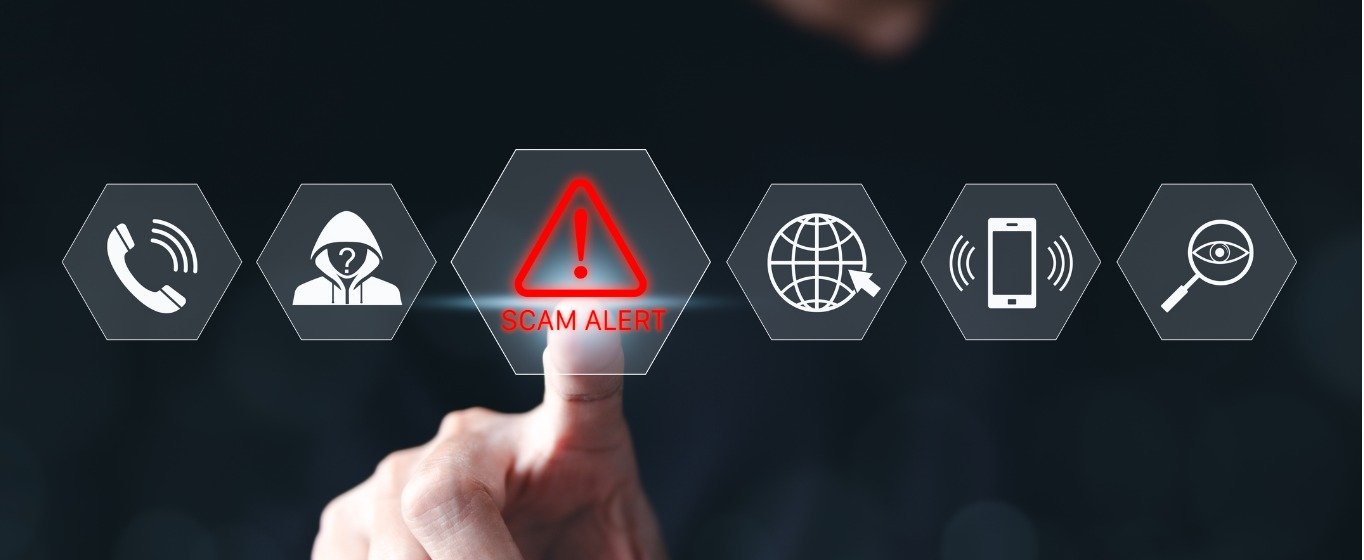How to Protect Yourself from Common Springtime Scams

April 3, 2025
As warmer weather changes your spending habits, scammers adjust to target you. With warmer weather and tax season in full swing, fraudsters capitalize on increased spending and financial activity. Three of the most common scams this time of year include home improvement fraud, tax scams, and charity fraud. Here’s how you can protect yourself, using Affinity Federal Credit Union resources to stay ahead of scammers.
Home Improvement Scams
Fraudulent contractors see an opportunity to take advantage of homeowners who are planning repairs, renovations, and landscaping projects. Scammers may pose as legitimate contractors, offering services at an appealing rate, only to disappear after receiving an upfront deposit — or deliver shoddy, incomplete work. Some may even pressure homeowners into unnecessary projects or claim repairs are mandated by local laws.
To protect yourself, always research contractors and request references. Check for proper licensing through your state’s contractor board, and confirm their reputation with the Better Business Bureau (BBB). Be cautious of contractors requesting large upfront payments before work begins. While a small deposit is standard, most payments should be tied directly to a specific agreement or service provided. Make sure that you have a detailed contract in place outlining the scope of work, estimated cost, and timeline for any project. Additionally, be wary of unsolicited contractors going door to door offering major discounts or claiming that you need urgent repairs.
Tax Scams
Tax season brings an increase in impersonation scams. Fraudsters often imitate IRS agents, or other tax experts. These scammers contact victims via phone, email, or text, claiming that they owe back taxes and must make an immediate payment to avoid legal action or arrest. Other scammers may attempt to steal personal information by offering fake tax relief programs.
To avoid falling victim, it’s important to recognize that the IRS will never demand immediate payment over the phone or threaten arrest for unpaid taxes. If you receive an email claiming to be from the IRS, do not open attachments or click on any links. Instead, visit the IRS website directly to verify the information.
Filing your taxes early can also reduce the risk of tax identity theft, as scammers may try to file a fraudulent return in your name before you do. If you’re using a tax preparer, confirm their legitimacy by checking their IRS Preparer Tax Identification Number1 (PTIN).
Charity Scams
Many people feel inspired to give back in the spring, whether by supporting local causes or contributing to disaster relief efforts. Unfortunately, scammers may take advantage by creating fake charities or impersonating real ones, using emotional appeals to pressure individuals into making donations.
Before donating, always research charities through sites like Charity Navigator or the BBB Wise Giving Alliance to confirm their legitimacy. Be cautious of urgent or high-pressure donation requests, as scammers often claim immediate donations are necessary for crisis relief. When donating, avoid cash and gift cards. Legitimate charities typically accept secure, trackable payment methods including credit cards and checks. Also, watch for fake websites that mimic real charities, often with slight misspellings in the URL. To ensure your donation goes to the right place, type the charity’s website link directly into your browser instead of clicking on links from emails or social media.
Affinity’s Commitment to Your Security
Affinity is committed to helping members protect themselves from fraud through proactive education, monitoring tools, and security resources. Members can take advantage of account alerts to monitor large transactions, ensuring unexpected payments don’t go unnoticed. Information on how Affinity can help dispute fraudulent charges, plus more tips on preventing falling victim to a scam can be found on the Fraud & Security Center page of our website. Staying informed and vigilant is the best way to keep your finances safe this spring and beyond.
This information is for informational purposes only, is intended to provide general guidance, and does not constitute legal, tax, or financial advice. Each person's circumstances differ and may not apply to the specific information provided. You should seek the advice of a financial professional, tax consultant, and legal counsel to discuss your particular needs before making any financial or other commitments regarding the matters related to your condition.
1 Retrieved from: https://irs.treasury.gov/rpo/rpo.jsf


